Nothing throws a wrench in your day quite like stepping into your home on a sweltering July afternoon, only to realize your air conditioner has decided to take an unscheduled vacation. Or maybe it’s a frigid January morning, and your furnace has mysteriously conked out overnight. Sound familiar? We’ve all been there, and honestly, it’s the kind of situation that makes you want to hit the panic button just a little bit.
Here in Colorado Springs, we know our weather has a mind of its own. One day it’s a glorious 75 degrees, and the next we’re bracing for a surprise snowstorm. That’s exactly why knowing what to expect from emergency HVAC repair response times isn’t just a good idea – it’s pretty much essential for your peace of mind and comfort.
Now, I’ve been around the block a few times in this industry, and let me tell you, not all emergency HVAC services are built the same. Some companies might leave you sweating (literally!) for what feels like an eternity, while others genuinely get that when your system goes down, every moment counts. So, let’s chat about what you can truly expect when you’re facing an HVAC emergency right here in Colorado Springs.
What Actually Counts as an HVAC Emergency?
Before we dive into how fast help arrives, let’s get super clear on what actually counts as a real emergency. Trust me, I’ve seen countless homeowners get totally stressed out over things that could easily wait for a regular appointment during business hours.
So, here’s my list of what I’d genuinely call true HVAC emergencies:
- Your entire system quits during extreme weather (we’re talking 90+ degrees or below 20 degrees – that’s when it really counts!)
- You smell gas or notice a strong gas odor near your furnace. This is a HUGE one!
- Electrical problems like sparks, burning smells, or a circuit breaker constantly tripping.
- Your carbon monoxide detector is blaring, especially if it seems related to your heating system.
- Frozen or burst pipes connected to your HVAC. Hello, water damage!
- No heat whatsoever, especially if you have vulnerable folks at home – like the elderly, infants, or anyone with health conditions.
On the flip side, things like a system that’s a little louder than usual, slight temperature ups and downs, or a thermostat that’s just acting a bit wonky? Those probably don’t need a frantic emergency call. Annoying, absolutely, but they can usually chill until a regular service appointment.
Realistic Response Times in Colorado Springs
Alright, let’s tackle the elephant in the room – how long you’ll actually be waiting when you call for emergency service. I’m going to shoot straight with you here, because I think it’s way better to know what to genuinely expect than to get a bunch of false promises.
Same-Day Service: What We All Hope For
The absolute best HVAC companies in Colorado Springs, like our friends at Accurate Air Control (give them a ring at (719) 440-6977!), usually aim for same-day emergency response. During those super busy peak seasons (think scorching summer and freezing winter), that often means they’ll be there within 4-8 hours of your call. In milder seasons, you might even see technicians arriving within 2-4 hours.
Here’s the kicker though – “same-day” doesn’t always mean “instantly.” If you call at 2 PM on a Tuesday in July, you’re probably competing with a whole bunch of other folks whose AC just decided to call it quits. The companies that reliably pull off same-day service are the ones who’ve really invested in bigger teams and smart scheduling systems.
Next-Day Service: Not the End of the World (Sometimes)
Some companies might promise next-day service for emergencies, which, honestly, isn’t the worst thing if you can manage. If your emergency pops up late in the evening or during an especially crazy busy period, next-day service might just be your reality, even with the top-tier companies.
The biggest thing here is communication. A truly good company will be totally upfront about their availability and give you realistic timeframes, instead of just telling you what you want to hear to get you off the phone.
The “We’ll Get There When We Get There” Approach: A Big No-No
Unfortunately, some companies treat emergency calls like any old regular service appointment. They’ll jot down your info, add you to their schedule, and you might end up waiting 2-3 days. For a true emergency, that’s just unacceptable. Honestly, it’s a giant red flag that you should probably find a different HVAC provider.
Factors That Affect Response Times
So, several things can totally affect how fast you get help. Knowing these little quirks can really help you set realistic expectations and maybe even boost your chances of getting quicker service.
Time of Year and Weather Conditions
Colorado Springs, bless its heart, sees some truly wild weather swings. HVAC companies know exactly when their phones are going to start ringing off the hook. That first truly scorching day of summer? Every AC that’s been snoozing suddenly decides it doesn’t want to work. The first really hard freeze? Furnaces everywhere start acting up and throwing a fit.
During these super busy peak periods, even the best companies get absolutely slammed. Think about it: emergency service calls can jump by over 300% during extreme weather. That means, unfortunately, longer wait times for pretty much everyone.
Time of Day and Day of Week
Here’s a little secret (or maybe it just feels like it!): HVAC systems have the absolute worst timing. They just *love* to break down at 6 PM on a Friday or at 2 AM on a Sunday. While real emergency services are indeed 24/7, you’ll generally get a faster response during regular business hours on weekdays.
If you call during off-hours, just know you’ll likely pay premium rates and potentially wait a bit longer. Most companies have dedicated on-call technicians, but they might be wrapping up another emergency call or simply need time to hustle over to your place.
Your Location in Colorado Springs
Where you actually live in our beautiful Colorado Springs area can totally play a role in how fast help arrives. If you’re right in the heart of the city, you’ll probably see quicker service than if you’re way out in the Black Forest or tucked up in the mountains. It’s just simple logistics – technicians need travel time, and those more spread-out locations naturally take longer to reach.
Severity of the Emergency
Good companies usually sort emergency calls by how serious they are. A gas leak or carbon monoxide issue? That’s getting immediate, drop-everything attention. A complete AC failure on a hot day, while awful, might wait a few hours. This is actually a really good thing – you want companies putting safety first, always.
What Affects Service Quality During Emergencies
Now, response time is super important, but it’s definitely not the *only* thing that matters. I’ve seen plenty of technicians show up quickly, only to realize they don’t have the right parts or just aren’t sure how to fix the specific problem. So, here’s what truly sets the great emergency services apart from the just-okay ones.
Proper Diagnosis and Equipment
The really good emergency technicians? They come totally prepared. They stock common parts right on their trucks, have all the necessary diagnostic gadgets, and know how to troubleshoot problems efficiently. Seriously, there’s nothing more frustrating than waiting forever for a technician, only for them to tell you they need to order parts and then come back next week. Ugh.
When you’re calling for emergency service, it’s smart to ask what percentage of their emergency calls they manage to resolve on the very first visit. Reputable companies should be able to tackle most common issues right then and there.
Transparent Pricing
Emergency service will cost more – that’s just the plain truth of it. But you absolutely shouldn’t be blindsided by the bill. Good companies will give you upfront pricing and clearly explain their emergency rates. You should know what you’re paying for labor, parts, and any after-hours premiums *before* they even start working.
Licensed and Insured Technicians
This point is especially, *especially* important here in Colorado, where HVAC contractors absolutely need to be licensed through the state. Please, don’t ever let anyone work on your system without proper licensing and insurance. It’s just not worth the massive risk, especially during an emergency when you might feel desperate and tempted to accept help from just anyone.
Common Problems and Realistic Solutions
Okay, let’s chat about some of the most common emergency situations I run into and what you can realistically expect when it comes to getting them fixed.
Complete AC Failure in Summer
This one’s probably the champ for most common emergency calls in Colorado Springs. The good news is that a lot of AC issues can actually be diagnosed and fixed pretty quickly. Here are some usual suspects:
- Blown fuses or tripped breakers (a super quick 15-30 minute fix)
- Dirty air filters causing the whole system to shut down (a 5-minute fix, though you might feel a little silly afterwards!)
- Refrigerant leaks (usually 1-3 hours, depending on where it is)
- Failed capacitors or contactors (a 30-60 minute job if the parts are handy)
Most AC emergencies can totally be resolved in just one visit if your technician is properly equipped. But, if your system is super old or has a really big component failure, like a compressor, you might be looking at a full-on replacement instead of just a repair.
Heating System Failure in Winter
Furnace problems can be a bit trickier, mainly because safety is a much bigger deal here. Technicians really need to be super thorough with gas connections and combustion systems. Some common headaches include:
- Pilot light or ignition problems (a 30-60 minute fix)
- Thermostat acting up (15-45 minutes)
- Dirty flame sensors (20-30 minutes)
- Heat exchanger problems (this one often means a major repair or even a full replacement)
The absolute key with heating emergencies is that safety always, always comes first. If there’s even a shred of doubt about how safe your system is, a good technician will absolutely shut it down until proper, safe repairs can be made.
Frozen or Burst Pipes
Colorado’s crazy temperature swings can really do a number on pipes, especially any connected to your HVAC system. These situations almost always need immediate attention to prevent serious water damage. You’ll usually find response times for pipe emergencies are faster precisely because of that potential for property damage.
How to Improve Your Chances of Fast Service
Okay, so you can’t exactly control how slammed HVAC companies get, but there are definitely some things you *can* do to boost your chances of getting faster, better service. Think of these as your secret weapons!
Build a Relationship Before You Need Emergency Service
This is, hands down, the best piece of advice I can offer. Companies like Accurate Air Control totally prioritize their existing customers when those emergency calls start flooding in. If you’ve been using them for regular maintenance, you’re absolutely going to get better response times than someone just calling for the very first time.
It just makes good business sense, right? They know your system, they know you pay your bills, and they genuinely want to take care of the customers who’ve shown them loyalty.
Provide Clear, Detailed Information
When you’re making that emergency call, be as specific as humanly possible about the problem. Instead of just saying “my AC isn’t working,” try explaining what’s *actually* happening: “My AC was running fine yesterday, but this morning it won’t turn on at all, and I don’t hear any sounds when I adjust the thermostat.”
This kind of detail really helps the dispatcher figure out how urgent your call is and helps the technician show up with the right tools and parts, saving everyone time.
Be Flexible with Timing
If you can be a bit flexible about the exact arrival time, you’ll often find you get service much faster. Companies can squeeze you in between scheduled appointments or jump on cancellations more easily than if you’re stuck on a super specific time window.
Prepare Your Space
Before the technician even pulls up, make sure they have clear, easy access to your HVAC equipment. Move any furniture, boxes, or anything else that might slow down the diagnosis and repair process. Trust me, every second saved helps during an emergency call!
Red Flags: When to Call Someone Else
Let’s be real, not every HVAC company handles emergencies like a pro. There are definitely some big warning signs you should keep an eye out for – think of them as “red flags” telling you it’s time to hang up and call someone else.
First off, if a company can’t give you *any* kind of estimate on when they’ll actually arrive, that’s a problem. Even when they’re super busy, they should at least be able to tell you something like, “Hey, we’re running about 6-8 hours behind, but we promise we’ll get to you today.”
Also, be super wary of companies that try to quote you prices right over the phone without even seeing the problem. Every situation is totally different, and truly honest companies know they absolutely need to diagnose the issue in person before giving you a firm price.
And here’s another one: watch out for companies that don’t bother to ask about how urgent your situation is. A truly good emergency service will ask smart questions to figure out if you’re dealing with a scary safety issue, a total system meltdown, or something a little less critical.
The Cost Reality of Emergency Service
Alright, let’s get down to brass tacks and talk money, because I know that’s probably weighing on your mind. Emergency HVAC service *does* cost more than a regular service call – usually about 1.5 to 2 times the normal rate. This extra cost helps cover having technicians ready to roll 24/7, keeping emergency parts in stock, and, let’s be honest, the general scramble of dropping everything to come save your day.
Here in Colorado Springs, you can typically expect to pay anywhere from $150-$300 just for the emergency service call itself, *before* any actual repairs even begin. And yes, parts and labor usually come with premium rates too.
But here’s the kicker – while emergency service isn’t cheap, it’s almost always worth every penny for true emergencies. Think about it: the expense of letting a small problem spiral into a huge one, or dealing with major property damage from burst pipes, often blows past the emergency service premium by a long shot.
Seasonal Considerations in Colorado Springs
Our little corner of the world here in Colorado Springs definitely throws some unique curveballs that impact HVAC emergency response times all year long.
Summer Challenges
Colorado Springs summers can be absolutely brutal. We’re talking temperatures regularly hitting the 90s, sometimes even spiking over 100! Plus, that altitude means the sun feels extra intense. So, when AC systems conk out during a heat wave, it’s not just uncomfortable – it can genuinely be dangerous for vulnerable family members.
Summer is, without a doubt, the absolute peak season for AC emergencies. That first truly scorching weekend of the year always, *always* creates a huge rush of emergency calls as systems that have been chilling idle suddenly decide they’re not up for the task.
Winter Realities
Our winters bring their own set of challenges. Temperatures can plummet well below zero, and we get those sudden, dramatic weather changes that really stress out HVAC systems. Heating emergencies during a cold snap are taken incredibly seriously by any reputable company.
Winter emergency calls often involve super critical safety concerns like gas leaks or carbon monoxide issues, which, as you can imagine, get immediate, top priority from good companies.
Shoulder Season Opportunities
Spring and fall – those “shoulder seasons” – are actually fantastic times to get a handle on any HVAC issues *before* they blow up into full-blown emergencies. Companies are typically less swamped, response times are zippier, and you won’t be shelling out for emergency premiums. If your system is acting a little wonky but still chugging along, seriously, try to get it looked at during these calmer periods.
Making the Right Call When Crisis Hits
When your HVAC system decides to completely quit on you, the company you pick can truly make all the difference between getting things fixed fast and enduring days of misery. So, based on everything we’ve chatted about, here’s what I really think you should look for in an emergency HVAC service:
First off, go with a company that’s been right here in Colorado Springs for ages and genuinely understands our quirky climate challenges. Local experience seriously matters when you’re dealing with altitude effects, those sudden crazy weather shifts, and all the specific little issues that hit HVAC systems in our area.


